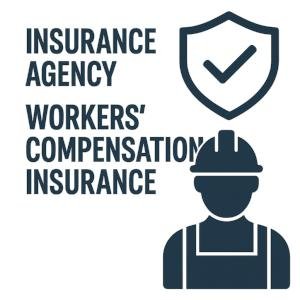
Choosing a Workers Comp Broker: 9 Questions to Ask Before You Sign
August 3, 2025
How OSHA Citations Spike Workers’ Comp Premiums in Georgia Senior Care Facilities
August 3, 2025In today’s complex regulatory habitat, establishing a complete workers’ compensation policy is essential for businesses operating in Georgia. Leveraging an Administrative Services Institution (ASO) model offers employers a tailored approach to managing risk, controlling costs, and ensuring compliance with state-specific requirements. This article explores the key considerations and strategic steps involved in building a workers’ comp policy through a Georgia ASO, highlighting how organizations can optimize claims administration, enhance employee support, and maintain operational continuity. Whether for emerging businesses or established enterprises,understanding the nuances of ASO-based workers’ compensation plans is critical to safeguarding both workforce well-being and financial performance.
Table of Contents
- Understanding the Role of a Georgia ASO in Workers’ Compensation Management
- Key Components to Include When Designing a Workers’ comp Policy with a Georgia ASO
- Strategic Risk Mitigation and Cost Control Recommendations for Georgia Employers
- best Practices for Compliance and Claims Handling Under a Georgia ASO Model
- Q&A
- In Retrospect
Understanding the Role of a Georgia ASO in Workers’ Compensation Management
In the complex landscape of workers’ compensation in Georgia, Administrating Services Organizations (asos) serve as pivotal partners for employers aiming to streamline claims management and control costs. A Georgia ASO acts as an intermediary, providing customized claims handling, medical bill review, and loss control services tailored to state-specific regulations.their expertise helps companies navigate compliance requirements while accelerating the claim resolution process, ultimately reducing employer liability and improving workplace safety outcomes.
Employers leveraging a Georgia ASO can expect key advantages such as:
- Efficient claims administration with dedicated case managers
- Proactive risk management consulting to minimize incidents
- Accurate claims cost forecasting and reporting
- Enhanced return-to-work programs geared towards Georgia labor laws
This strategic partnership enables businesses to maintain control over their workers’ compensation programs while benefiting from industry insights specific to the Georgia market.
| Service | Benefit | Georgia-Specific Focus |
|---|---|---|
| Claims Management | Faster claim resolution | Aligned with Georgia State Board procedures |
| Medical Bill Review | Cost containment | Compliance with Georgia fee schedules |
| Risk Control | Reduced workplace injuries | Customized safety programs for Georgia industries |
| Return-to-Work | Improved employee retention | Georgia labor law compliance |
Key Components to Include when Designing a Workers’ Comp Policy with a Georgia ASO
When structuring a workers’ comp policy alongside a Georgia ASO (Administrative Services Only), it is essential to prioritize both compliance and risk management. First, confirm that the policy aligns with Georgia’s statutory requirements, including proper state filing and adherence to benefit mandates. employers should collaborate closely with the ASO to develop clear claims management protocols and establish standardized processes for reporting and handling workplace injuries.This ensures claims are handled promptly and efficiently while reducing exposure to potential legal complications.
Beyond compliance, a comprehensive policy must include customized risk control programs and return-to-work strategies tailored to the specific industry and workforce. Effective communication channels between the employer, injured employees, and medical providers are critical to sustaining transparency and promoting timely recovery. Key components to integrate include:
- Claims Reporting Procedures: Defined timelines and methods for incident notification.
- Medical Management: Preferred providers and approval processes.
- Data Analytics: Utilization of loss runs and injury trends for proactive risk mitigation.
- Employee Training: Safety education programs and compliance awareness.
| Component | Benefit |
|---|---|
| Claims Reporting | Faster issue resolution and reduced litigation |
| Medical Management | Lower medical costs and improved recovery times |
| Data Analytics | Informed decision-making for risk reduction |
| Employee Training | Decreased workplace accidents |
Strategic Risk Mitigation and Cost Control Recommendations for Georgia Employers
Effectively managing workers’ compensation exposure in Georgia demands a proactive and tailored approach to risk mitigation. employers should prioritize comprehensive safety programs that not only comply with state regulations but also actively engage employees through ongoing training and awareness campaigns. Implementing a robust claim review process ensures early identification of potential high-cost claims,enabling timely interventions that can reduce both the frequency and severity of incidents. Additionally, leveraging data analytics tools offers insights into workplace trends, empowering employers to make informed decisions that bolster risk controls and improve overall safety culture.
Key strategies for cost containment include:
- Customized return-to-work programs to minimize lost time
- Regular audits of medical and indemnity claims for accuracy
- Collaboration with an experienced ASO partner to optimize self-insured arrangements
- Investment in ergonomic workplace modifications
| Strategy | Benefit | Impact on Cost |
|---|---|---|
| Safety Training Programs | Reduces accident rates | High |
| Early Claims Intervention | Speeds injury recovery | Medium |
| Return-to-Work Initiatives | Lowers indemnity payouts | High |
| Medical Bill Auditing | Eliminates billing errors | Medium |
Best Practices for Compliance and Claims Handling Under a Georgia ASO Model
Ensuring compliance under a Georgia Administrative Services Only (ASO) model requires a rigorous focus on regulatory adherence and proactive claims management. Regular audits and ongoing training sessions for your internal teams help maintain alignment with state-specific workers’ compensation laws. It is equally notable to establish clear documentation protocols that reinforce transparency and accountability throughout the claims process. This not only mitigates risks but also promotes timely dispute resolution and reduces the likelihood of costly litigation.
Effective claims handling hinges on fostering strong communication channels between employers, employees, and third-party administrators.Consider implementing a streamlined reporting system that captures essential data points such as injury details, medical updates, and return-to-work plans. The following checklist can guide your approach:
- Immediate injury reporting to minimize delays
- Consistent follow-up with medical providers for accurate treatment progress
- Documented Return-to-Work programs that support employee recovery
- Data-driven analysis to identify trends and adjust safety protocols
| Compliance Task | Description | Recommended Frequency |
|---|---|---|
| Policy Review | Update coverage terms to align with regulatory changes | annually |
| Claims Audit | Assess claim accuracy and process efficiency | Quarterly |
| Employee Training | Educate on injury reporting and safety procedures | Semi-Annually |
Q&A
Q&A: Building a Workers’ Comp Policy-Georgia ASO
Q1: What is a Georgia ASO in the context of workers’ compensation?
A1: A Georgia ASO (Administrative Services Organization) is a specialized third-party administrator that assists employers in managing their workers’ compensation claims and policies. It provides tailored administrative support, claims management, and risk control services, allowing employers greater oversight and potential cost savings.
Q2: Why should Georgia employers consider building a workers’ comp policy with an ASO?
A2: Partnering with a Georgia ASO enables employers to customize their workers’ compensation programs to better fit their unique risk profiles. This approach often results in enhanced claims management, improved safety initiatives, and more effective cost containment compared to standard insurance policies.
Q3: What are the key components of constructing a workers’ comp policy via a Georgia ASO?
A3: Key components include risk assessment, policy design tailored to the employer’s industry and workforce, integration of dedicated claims administration, implementation of loss control and return-to-work programs, and ongoing reporting and data analysis to optimize the program’s performance.
Q4: How does risk assessment impact the development of a workers’ comp policy in Georgia?
A4: Risk assessment identifies specific workplace hazards and injury trends, enabling the ASO to tailor coverage limits, safety protocols, and claims handling procedures. This targeted approach reduces unnecessary expenditures and improves overall risk management.
Q5: What benefits does an ASO model offer over traditional workers’ comp insurance?
A5: The ASO model offers greater flexibility in managing claims, enhanced transparency, direct control over medical and indemnity benefits, and potential premium savings. Employers can also implement proactive safety and return-to-work programs, which may reduce claim frequency and severity.
Q6: are there regulatory considerations unique to Georgia when building a workers’ comp policy with an ASO?
A6: Yes, Georgia’s workers’ compensation laws require compliance with state-specific reporting, claim management protocols, and coverage requirements. An experienced Georgia ASO ensures that policies and administrative practices align with all regulatory mandates, minimizing legal risks.
Q7: How does ongoing reporting and data analysis improve a Georgia ASO workers’ comp policy?
A7: Continuous monitoring provides insights into claim trends, cost drivers, and program effectiveness. This data allows employers and ASOs to adjust strategies proactively, such as refining safety initiatives or modifying benefits, to maintain optimal program performance.
Q8: What steps should a Georgia employer take to implement a workers’ comp policy through an ASO?
A8: Employers should begin with a comprehensive needs assessment, select a reputable Georgia-based ASO with industry expertise, collaboratively design the policy structure, integrate robust claims and risk management systems, and establish ongoing communication and evaluation processes.
Q9: Can small and mid-sized businesses in Georgia benefit from ASO workers’ comp programs?
A9: Absolutely. While traditionally favored by larger employers, ASO services are increasingly accessible to small and mid-sized businesses seeking greater control over their workers’ compensation costs and claims outcomes.Q10: What role does loss control play in a Georgia ASO workers’ comp policy?
A10: Loss control is critical; it encompasses safety training, workplace inspections, and injury prevention strategies. An ASO helps design and implement these programs to reduce workplace accidents,enhance employee well-being,and ultimately lower workers’ compensation costs.
In Retrospect
establishing a robust workers’ compensation policy through a Georgia ASO offers businesses a strategic advantage in managing workplace risks effectively. By partnering with an experienced Administrative Services Organization, companies can tailor their policies to meet specific needs, ensuring compliance while optimizing cost control and claims management. As the regulatory landscape continues to evolve, leveraging the expertise of a Georgia ASO not only streamlines administrative processes but also enhances employee protection and organizational resilience. Investing in a well-structured workers’ comp policy is a critical step toward safeguarding your workforce and securing long-term business stability.
“This content was generated with the assistance of artificial intelligence. While we strive for accuracy, AI-generated content may not always reflect the most current information or professional advice. Users are encouraged to independently verify critical information and, where appropriate, consult with qualified professionals, lawyers, state statutes and regulations & NCCI rules & manuals before making decisions based on this content.







